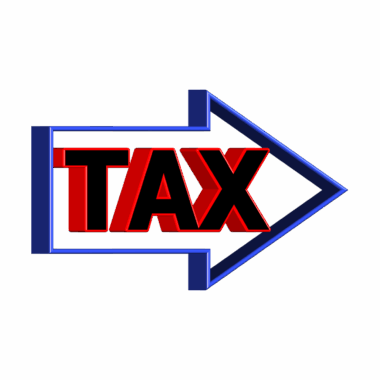Understanding Tax Deduction Strategies for Freelancers and Consultants
Tax deductions are critical for freelancers and consultants striving to minimize their taxable income. Knowing the available options enables better decision-making, ensuring maximum savings during tax season. As an independent worker, it’s crucial to keep accurate records of expenses that qualify for deductions. Common deductible expenses include home office costs, travel expenses, and professional fees. Each deductible item contributes to reducing overall taxable income. Freelancers must be diligent in tracking all receipts and invoices related to work-related expenses. This practice not only assists during tax filing but also ensures compliance with IRS regulations. By categorizing expenses properly, freelancers can present clear documentation, reducing the risk of audits. Tax software or a professional accountant may help streamline this process, making it easier to maximize deductions. Furthermore, understanding the difference between personal and business expenses aids in maintaining clarity and prevents errors. Those who work from home should also consider the associated costs, such as utilities and internet services, which can be partially deductible. Staying organized and informed can make a significant difference in financial returns at the end of the year. Knowledge is power, especially in financial matters.
It is crucial for freelancers and consultants to delve deeper into the specifics of tax deductions available to them. One major category involves vehicle expenses. For instance, if freelancers use a vehicle for business purposes, they may claim either standard mileage rates or actual expenses incurred. Each option has its pros and cons, depending on the circumstances surrounding individual use and the overall business structure. Similarly, professional development costs, including courses or workshops relevant to the field, are deductible. These expenses not only aid in advancing skills but also contribute to reducing taxable income. Additionally, freelancers should not overlook health insurance premiums if they are self-employed. Being able to write off these expenses helps in lessening the financial burden of healthcare. Also, contributions to retirement accounts such as SEP IRAs or Solo 401(k)s present excellent opportunities for tax deductions while securing one’s future. Ultimately, engaging with a tax professional could provide personal insights into what applies best to individual situations. This expertise can be invaluable, particularly in navigating the complexities particularly unique to freelancers, ensuring they enjoy every tax advantage.
Utilizing Home Office Deductions
Home office deductions present another significant saving opportunity for freelancers and consultants. This deduction allows eligible individuals to claim a portion of their home expenses associated with a dedicated workspace. Freelancers must meet specific requirements by using part of their home solely for business, thus creating an exclusive space for work. The key is to calculate the square footage utilized for work versus the entire home area, enabling a reasonable approach to determining deductible percentages. Moreover, associated costs such as rent or mortgage interest, utilities, and maintenance can also reduce taxable income. Home office deductions are accessible either through a simplified method or the actual expense method. The simplified option allows freelancers to take a standard deduction per square foot, offering ease of use. Conversely, the actual expense method requires detailed record-keeping, allowing more comprehensive claims. Understanding which method applies and tracking expenses methodically can significantly enhance deductions. Utilizing calculators and guides available online can assist in the calculations. The home office deduction not only protects against paying taxes but rewards entrepreneurs for setting up effective work environments.
Another important strategy involves taking into consideration the startup costs incurred during the initial stages of freelance or consulting work. Startups can bring various new expenses that are often overlooked by new freelancers. These initial costs may include market research expenses, software purchases, and branding. The IRS allows freelancers to deduct up to $5,000 of these startup costs in the first year of operation. Any excess costs can be amortized over 15 years. Understanding this could prove beneficial in maximizing initial deductions while establishing a budding business. Freelancers should meticulously document every expense incurred during the startup phase, providing evidence of their efforts to launch a valid business initiative. Documenting this pathway helps outline overall bigger financial strategies later in progression. This expense tracking is just as pivotal as continuing to document yearly expenses for ongoing operations. By categorizing startup expenses and ongoing costs can help comprehensively assess cash flow dynamics. Handling finances effectively from the start can streamline operations and reduce stress in future tax years, granting freelancers the umbrella of tax security and confidence to grow their ventures.
Leveraging Educational Expenses
Education remains another vital component in maximizing tax deductions for freelancers and consultants. The IRS permits the deduction of educational expenses that maintain or enhance skills relevant to the individual’s profession. This category encompasses various costs such as tuition, books, and even travel. However, merely being enrolled in any course won’t qualify it for deductions. The expense must tie back explicitly to the service performed by the freelancer to avoid complications. Freelancers should consider attending industry-specific conferences or workshops, which are often deductibles. Networking opportunities may also arise during these engagements, further enriching professional growth. Seeking out educational opportunities that update skills ensures freelancers stay relevant within competitive fields. Any individual engaging in potential career advancement must constantly aim to elevate their expertise. Understanding these tax benefits intricately can also highlight areas one might invest in professionally. Conducting research yearly on changing tax laws and whether proposed educational programs align with tax-deductible criteria remains crucial for optimal financial advantage. By investing in oneself while benefiting tax-wise, freelancers can continue to flourish in both performance and satisfaction.
In addition to direct costs, freelancers often overlook the administrative expenses incurred while managing their businesses. Costs associated with accounting, bookkeeping software, and office supplies can accumulate but represent valid deductions. Freelancers should consider every tool and resource that supports their ability to run their operations smoothly. Subscription tools such as project management platforms, email marketing services, and cloud storage also qualify as legitimate business expenses. Evaluating what services are utilized for better efficiency ensures tight financial records and use of tax advantages. For example, if freelance work involves utilizing specific software programs, related license fees or updates can be claimed as legitimate tax deductions. Understanding what qualifies and carefully monitoring these recurring costs helps in cleaning up any financial strategies. Additionally, regular consultation with taxation experts can assist in navigating these waters, ensuring that freelancers capitalize on all allowable deductions. Using comprehensive bookkeeping methods creates clarity in what can be written off each tax year, making the overall annual tax process less daunting. Recording every administrative cost accurately aids in maintaining healthy cash flow and tax management.
Final Thoughts on Tax Optimization
In conclusion, implementing tax deduction strategies is paramount for freelancers and consultants. Adequate knowledge about deductible expenses fosters sound financial decisions, optimizing annual taxes efficiently. By diligently tracking expenses, understanding business-related deductions, and consulting with tax professionals, freelancers can capitalize on opportunities for money savings. Every dollar saved on taxes can go towards investing back into their business or personal development. Furthermore, cultivating an awareness regarding changes in tax legislation ensures freelance professionals remain proactive in their financial planning. Missed deductions often lead to leaving money on the table, which can profoundly impacts freelancers’ financial well-being. A compiled list of common deductions serves as a valuable reminder when working on taxes annually. Moreover, continuously evaluating spending against potential deductibles keeps freelancers economically sound. Comprehensive expenditure tracking is an essential practice that enables freelancers to benefit fully from their hard work. As a reminder, remaining informed about your unique business situation allows for successful financial management, ultimately fostering growth and sustainability. Continuous learning about tax strategies becomes vital, highlighting the importance of maintaining organizational skills and thorough record-keeping.
By keeping up to date and informed, freelancers prepare themselves for achieving the best outcomes in their financial situations. The essence of tax deductions lies in their power, serving as a means to lessen taxable income. Being diligent in understanding what qualifies ensures individuals leverage their finances effectively. This effort can free up resources for more strategic purposes, ultimately laying the foundation for long-term success. In having a clear understanding, freelancers can adapt their strategies based on the changing business landscape and tax laws. Learning about deductible expenses does not end once they start freelancing; it is an ongoing journey that accompanies the evolution of one’s career. Active management and exploration of all options available can lead to new financial avenues. Therefore, reviewing and updating financial strategies should occur regularly, ensuring nothing is overlooked. As the landscape shifts, so does the need for adaptive measures for tax planning. Emphasizing diligence in identifying potential deductions can serve freelancers well in minimizing tax liabilities and fostering successful financial practices. Their next steps involve a solid commitment to achieving the best financial results with their freelance endeavors.





